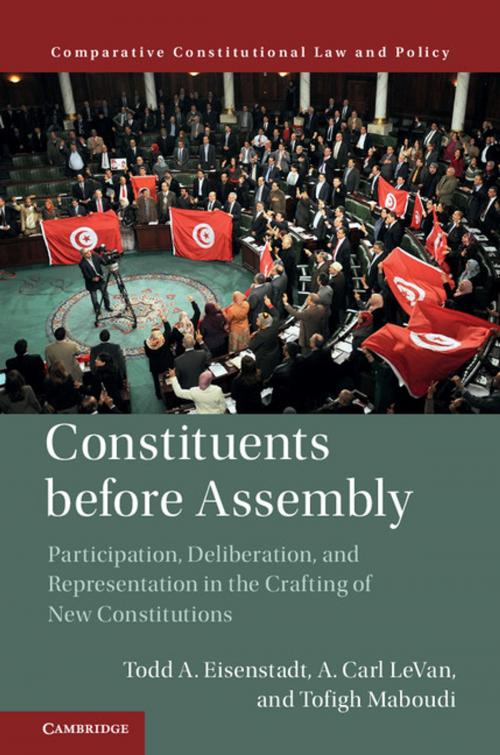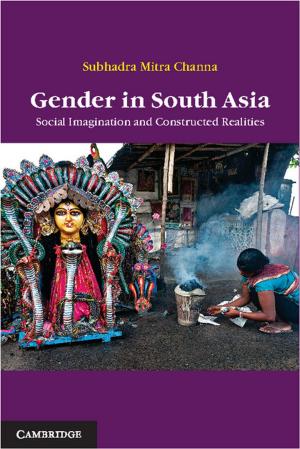Constituents Before Assembly
Participation, Deliberation, and Representation in the Crafting of New Constitutions
Nonfiction, Reference & Language, Law, Constitutional, Social & Cultural Studies, Political Science| Author: | Todd A. Eisenstadt, A. Carl LeVan, Tofigh Maboudi | ISBN: | 9781316733585 |
| Publisher: | Cambridge University Press | Publication: | July 3, 2017 |
| Imprint: | Cambridge University Press | Language: | English |
| Author: | Todd A. Eisenstadt, A. Carl LeVan, Tofigh Maboudi |
| ISBN: | 9781316733585 |
| Publisher: | Cambridge University Press |
| Publication: | July 3, 2017 |
| Imprint: | Cambridge University Press |
| Language: | English |
Under what circumstances do new constitutions improve a nation's level of democracy? Between 1974 and 2014, democracy increased in 77 countries following the adoption of a new constitution, but it decreased or stayed the same in 47 others. This book demonstrates that increased participation in the forming of constitutions positively impacts levels of democracy. It is discovered that the degree of citizen participation at the 'convening stage' of constitution-making has a strong effect on levels of democracy. This finding defies the common theory that levels of democracy result from the content of constitutions, and instead lends support to 'deliberative' theories of democracy. Patterns of constitutions are then compared, differentiating imposed and popular constitution-making processes, using case studies from Chile, Nigeria, Gambia, and Venezuela to illustrate the dynamics specific to imposed constitution-making, and case studies from Colombia, Ecuador, Egypt, and Tunisia to illustrate the specific dynamics of popular constitution-making.
Under what circumstances do new constitutions improve a nation's level of democracy? Between 1974 and 2014, democracy increased in 77 countries following the adoption of a new constitution, but it decreased or stayed the same in 47 others. This book demonstrates that increased participation in the forming of constitutions positively impacts levels of democracy. It is discovered that the degree of citizen participation at the 'convening stage' of constitution-making has a strong effect on levels of democracy. This finding defies the common theory that levels of democracy result from the content of constitutions, and instead lends support to 'deliberative' theories of democracy. Patterns of constitutions are then compared, differentiating imposed and popular constitution-making processes, using case studies from Chile, Nigeria, Gambia, and Venezuela to illustrate the dynamics specific to imposed constitution-making, and case studies from Colombia, Ecuador, Egypt, and Tunisia to illustrate the specific dynamics of popular constitution-making.















